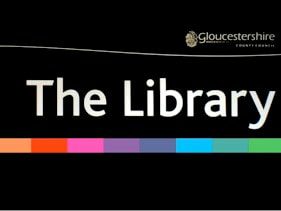W.W.1 Soldier-poet F. W. Harvey, and Remembrance
Teacher Resources
Teacher Resources
F. W. Harvey fought as an officer in the First World War and was awarded for gallantry. Much of his poetry during the war was written after being taken prisoner. He became well known after the war as a popular poet and broadcaster.
Below are examples of his poetry we think are suitable for use in school. Suitable for all Key Stages unless suggested in brackets.
[Scroll down for suggestions on how to use them in the classroom]
Below are examples of his poetry we think are suitable for use in school. Suitable for all Key Stages unless suggested in brackets.
[Scroll down for suggestions on how to use them in the classroom]
World War One Poetry
'If We Return'
(K2/3/4)
"...Oh, English fields shall blossom red
For all the blood that has been shed..."
A solider addresses his comrade, questioning whether the things they have seen and done in war will have been worth it. He expresses the sense of responsibility to those who have given their lives.
The text of the poem can be found here
Below is a video of a recent reading of the poem...
(K2/3/4)
"...Oh, English fields shall blossom red
For all the blood that has been shed..."
A solider addresses his comrade, questioning whether the things they have seen and done in war will have been worth it. He expresses the sense of responsibility to those who have given their lives.
The text of the poem can be found here
Below is a video of a recent reading of the poem...
'In Flanders'
In this poem a solider expresses his longing for the landscape and scenery of his rural homeland.
A copy of the poem can be found here
Other Poetry
'Ducks'
Voted one of the nation’s favourite poems in 1996.
Hear his daughter talk about how the poem was written:
BBC World War One at Home: The Laureate of Gloucestershire
'Warning'
This poem mentions local ‘folklore’ including, ‘Who killed the bear?’
You can hear a recording of F. W. Harvey himself reading the poem here.
It has also been set to music by Gloucestershire folk musician Johnny Coppin:
Voted one of the nation’s favourite poems in 1996.
Hear his daughter talk about how the poem was written:
BBC World War One at Home: The Laureate of Gloucestershire
'Warning'
This poem mentions local ‘folklore’ including, ‘Who killed the bear?’
You can hear a recording of F. W. Harvey himself reading the poem here.
It has also been set to music by Gloucestershire folk musician Johnny Coppin:
'Rain After Drought'
The earth was dry
It opened mouths to cry
But could not speak.
The clouds on high
Looked downwards from the sky
With pity for the weak.
The little mouths gave thanks
With primroses on banks
And bluebells ringing.
The rain had slaked their throats
And flowers were notes
Of their sweet singing.
'Gloucestershire From the Train'
The golden fields wheel round-
Their spokes, green hedges;
And at the galloping sound
Of the train, form watery sedges
Arise familiar birds.
Pools brown, sand blue, and green,
Criss-crossed with shadows,
Flash by, and in between
Gloucestershire meadows
Lie speckled red with hers.
A little flying farm, with humped grey back
Against the rays that warm
To gold a last-year stack.
Like a friendly cat appears;
And so through gloom and gleam
Continues dwindling,
While in my heart a dream
Of home awakes to kindling
Fire, and falling tears.
'Friendly Furniture'
Fear not little ones! Let no strange creaking:
No ghostly step or shade, make you dismayed!
‘Tis but the friendly furniture that’s speaking.
Lamp I give you light
To read at night
To read and write
In quiet hours
Clock I am the clock
With my tick-tock
I measure time
Before it go:
That you may know
To take the prime
And be not slow.
Fire I warm the room.
I paint the gloom
With flickering red
Of suns long dead
Bed I am the bed
Lay down the head
And take your rest,
For sleep is best
Aye- sleep is best.
Others We too, we too
Are friends to you!
Table A tree was I.
Chair And I.
Sideboard And I.
All Gladly we died to bring you ease.
But remember we were trees.
So when at night you hear a creaking
Think only that old trees are speaking:
Let no child be afraid!
Tables and chairs and wooden stairs
All once were young,
In a forest glade
Their branches crowned with stars, or with
Green leafage hung.
Also consider:
'Thunderstorm'
'The wind'
Ideas for using the poems in the classroom
- The National Curriculum has objectives for pupils preparing, reading aloud and performing poetry in Key Stages 1-3. All the poems above would be suitable for whole class/ group/ individual rehearsal and performance
- Annotate the poems – make statements or raise questions
- Cut up the poems by verses, lines or words to be re-sequenced
- Illustrate a poem and annotate with words and images
- Record three readings of the poem – each read in very different ways. Discuss which is the best reading and why
- Use the poetry to write a ‘modern, updated version’ e.g. the poem ‘Gloucestershire from the train’ and its description of scenery from the train window could be updated for pupils to describe the forest or woodland near to them as they pass by in the car, bus or walking.
The Poetry Archive has a collection of F.W. Harvey reading five of his own poems from 1938.
The best of F.W. Harvey can be found in two collections:
- F.W. Harvey: Collected Poems 1912-1957. Coleford: Douglas McLean. 1983.
- Boden, Anthony; Thornton, R.K.R., eds. (2011). F.W. Harvey: Selected Poems. Coleford: Douglas McLean.
comments
Please let us know if you found these resources useful or if you have any suggestions...



